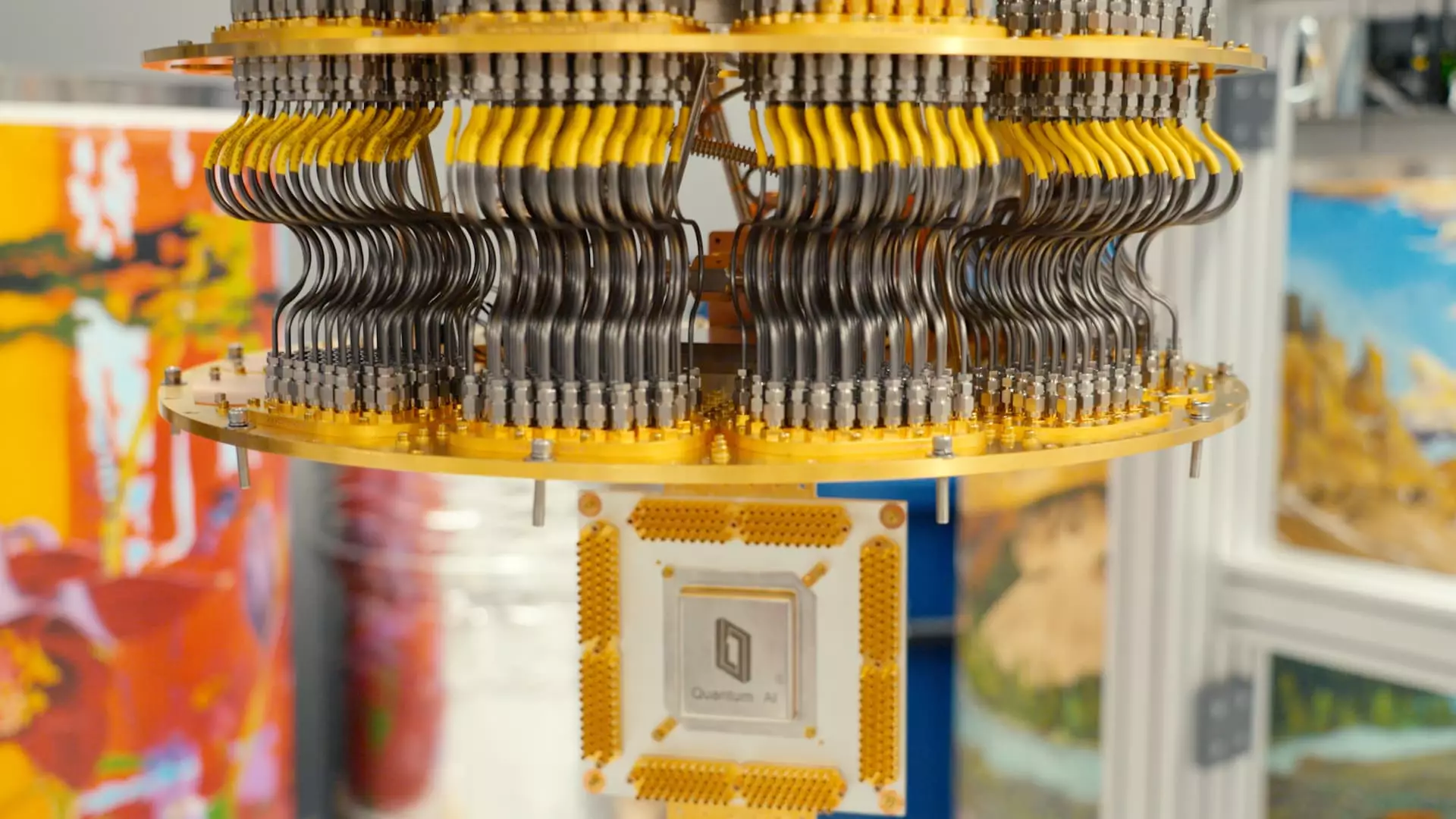In the hidden corners of Santa Barbara, California, a groundbreaking initiative unfolds within the walls of Alphabet’s research facilities. Here, a dedicated team of scientists is fervently engaged in developing quantum computers that could redefine our understanding of technology. This project is not merely a scientific endeavor; it’s a bold strategic move by Google to carve its place in the rapidly evolving tech landscape. With the advent of generative AI technologies that have captivated the world, Google has recognized the need to innovate swiftly and decisively.
Quantum Computing: A Game Changer for AI
Julian Kelly, the director of hardware at Google Quantum AI, highlights the symbiotic relationship that could emerge between quantum computing and artificial intelligence. “In the future, quantum and AI, they could really complement each other back and forth,” he claims. This assertion underpins Google’s ambition not just to catch up but to spearhead a technological shift. Although critics argue that Google lagged in the generative AI race—initially overshadowed by OpenAI’s meteoric rise with ChatGPT—this new quantum initiative signals a change in tactics.
Just last year, Google unveiled Willow, a revolutionary quantum chip capable of solving complex problems at an incredible speed, a feat that traditional computers struggle with. According to John Preskill, a prominent figure in the quantum field, Willow’s capabilities represent a significant milestone. His approval emphasizes the urgency and significance of Google’s advancements and suggests that the tech titan is ready to shift the narrative.
Transforming Challenges into Opportunities
As the AI landscape nears a saturation point, with models exhausting available high-quality data for training, quantum computing presents an unprecedented opportunity. Kelly suggests that quantum computers could pave the way for generating innovative data sets, essentially filling the gaps that current AI models face. One of the most compelling examples he provides is AlphaFold, an AI model that revolutionized the study of protein structures and earned its creators a Nobel Prize in Chemistry. The potential for quantum computing to enrich AI by providing new layers of data informed by quantum mechanics is intriguing and multidimensional.
A Vision for Tomorrow: Five Years to Breakthrough
Kelly’s projection that Google is only five years away from realizing a practical application of quantum computing is bold but grounded in a logical trajectory of progress. He sees a future where quantum capabilities will not only advance scientific understanding but will also catalyze commercial opportunities. The implications are vast: from drug discovery to complex systems modeling, quantum computers could empower AI systems with capabilities currently deemed unattainable.
In essence, Google is not just catching up; it’s gearing up for a transformative leap that could forever alter the relationship between AI and quantum technologies. As the boundaries of computational power continue to extend, the interplay between these two realms promises a future rich with possibilities, challenging existing paradigms of technology and intelligence.


Leave a Reply